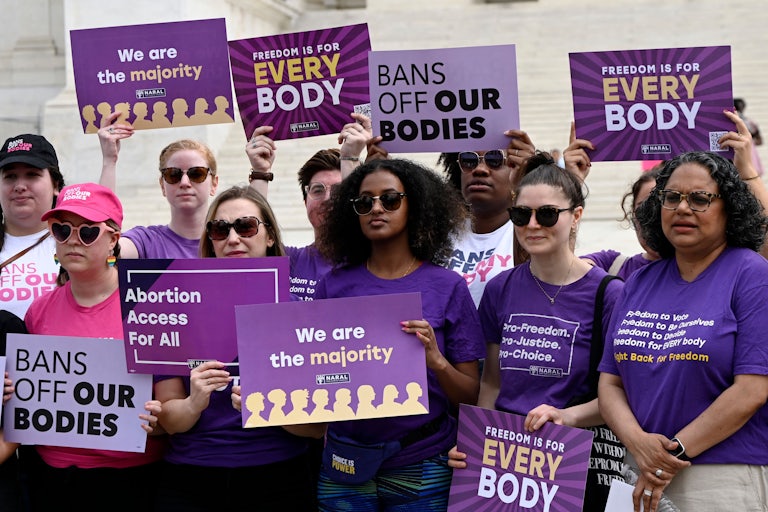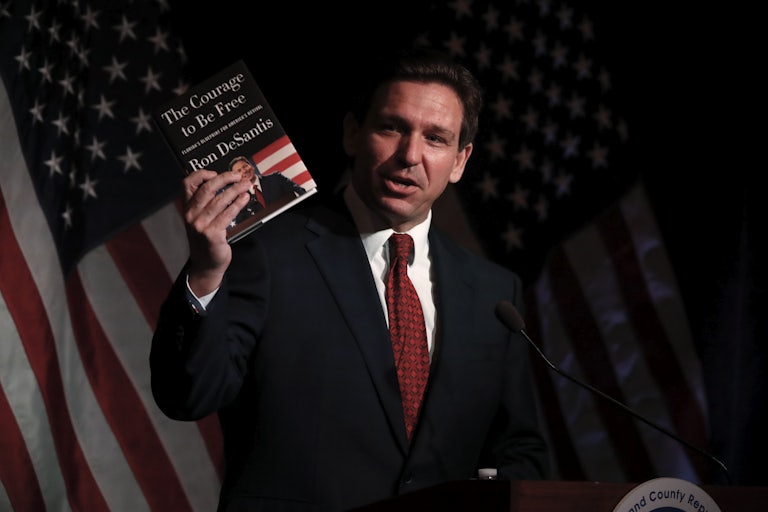Supreme Court Temporarily Pauses Abortion Pill Restrictions
The legal fight on the FDA’s approval of mifepristone continues.

The Supreme Court on Friday temporarily paused lower court rulings that restricted access to the abortion pill mifepristone, which would have dealt a major blow to national abortion access had it gone into effect.
A Texas federal judge ruled last week that mifepristone, one of the medications used to induce an abortion, had been improperly approved by the Food and Drug Administration and should be yanked from the U.S. market. The Department of Justice appealed the decision, but the Fifth Circuit Court only partially stayed the ruling while it considers the full appeal suit. Meanwhile, dueling rulings on the pill made it tricky for the FDA to figure out what exactly it should do next.
The Supreme Court decided to stay the Texas ruling until April 19, meaning mifepristone’s status remains unchanged—for less than a week. Economist reporter Steven Mazie, who covers the Supreme Court, pointed out that this is purely an administrative stay to give the court time to consider the appeal.
The fact this administrative stay was issued indicates nothing about how the Court will eventually respond. Again, it just holds things in place so the court has a few days to consider the issues.
— Steven Mazie (@stevenmazie) April 14, 2023
Both the Department of Justice and Danco Laboratories, which manufactures mifepristone, had appealed the Fifth Circuit ruling to the Supreme Court. Both received identical responses about the administrative stay. Danco argued that the partial stay would “irreparably injure” its business because it would have to change its drug labels, recertify providers, and get approval for a supplemental new drug application, all processes that could take months.
Danco also pointed out that it could not comply with both the Fifth Circuit ruling and the dueling injunction out of Washington ordering that mifepristone access remain unchanged. The company argued that if the Supreme Court weren’t willing to completely stay the Texas ruling, then the high court should hear the entire case now and make a final decision.
A bigger issue at play, though, is that non-elected judges who do not have medical backgrounds are making decisions about medication. As Rachel Rebouché, the dean of Temple University’s law school, previously told The New Republic, “The question for appellate courts is not just about abortion but about deference to a federal agency’s expertise.”
The Texas ruling “undermined” the FDA’s authority, she said. “To take seriously that it ignored risks, risks unsupported by any credible evidence, suggests questions as to what federal courts might decide about other federal agencies’ decisions.”








